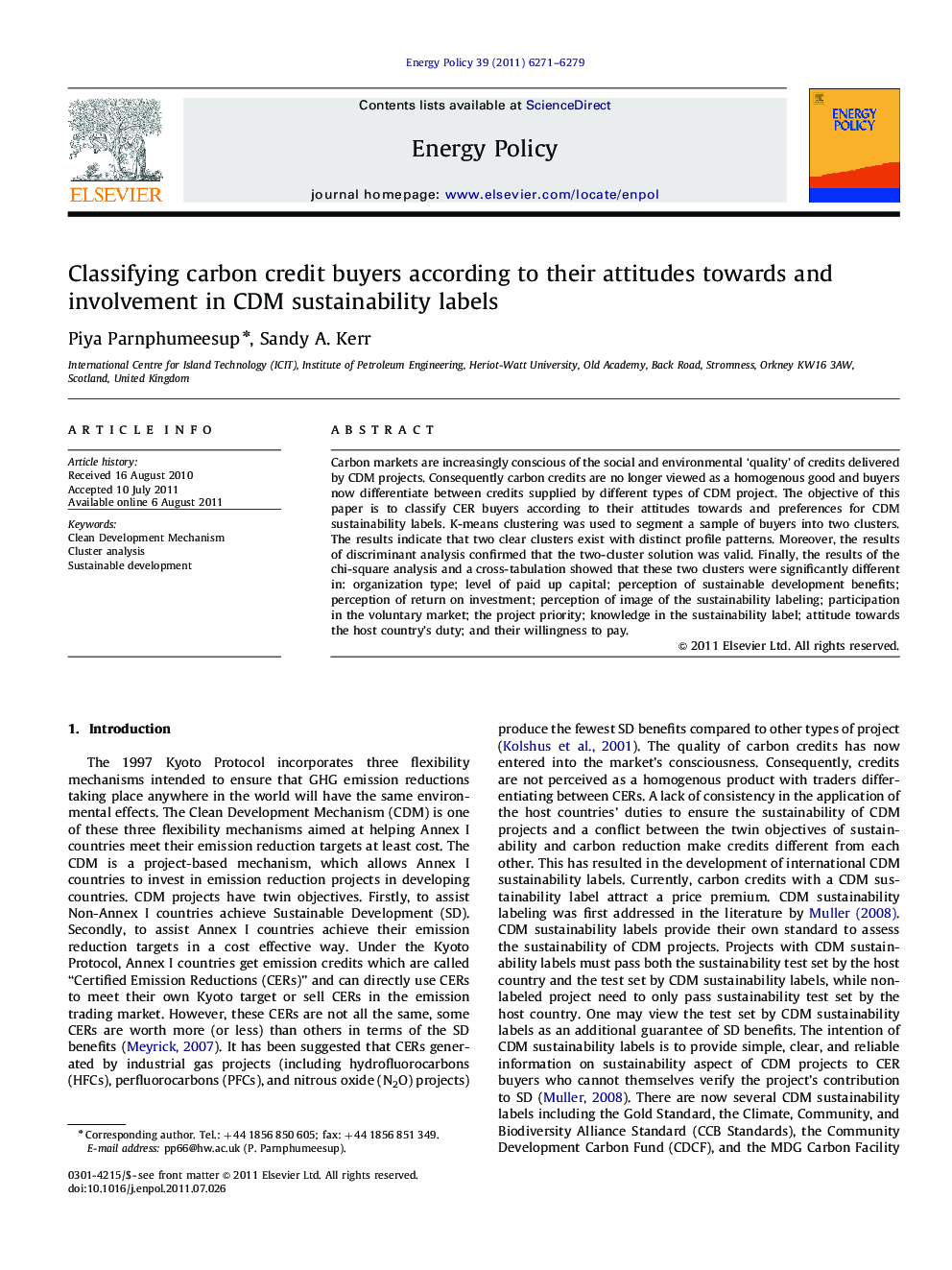| Article ID | Journal | Published Year | Pages | File Type |
|---|---|---|---|---|
| 993067 | Energy Policy | 2011 | 9 Pages |
Carbon markets are increasingly conscious of the social and environmental ‘quality’ of credits delivered by CDM projects. Consequently carbon credits are no longer viewed as a homogenous good and buyers now differentiate between credits supplied by different types of CDM project. The objective of this paper is to classify CER buyers according to their attitudes towards and preferences for CDM sustainability labels. K-means clustering was used to segment a sample of buyers into two clusters. The results indicate that two clear clusters exist with distinct profile patterns. Moreover, the results of discriminant analysis confirmed that the two-cluster solution was valid. Finally, the results of the chi-square analysis and a cross-tabulation showed that these two clusters were significantly different in: organization type; level of paid up capital; perception of sustainable development benefits; perception of return on investment; perception of image of the sustainability labeling; participation in the voluntary market; the project priority; knowledge in the sustainability label; attitude towards the host country's duty; and their willingness to pay.
► The K-means clustering was used to classify CER buyers in the primary market. ► The carbon market is divided into two: the premium market; and the normal market. ► Governments tend to be members of the premium market. ► 82% of members in the premium market are willing to pay a price premium for CERs.
